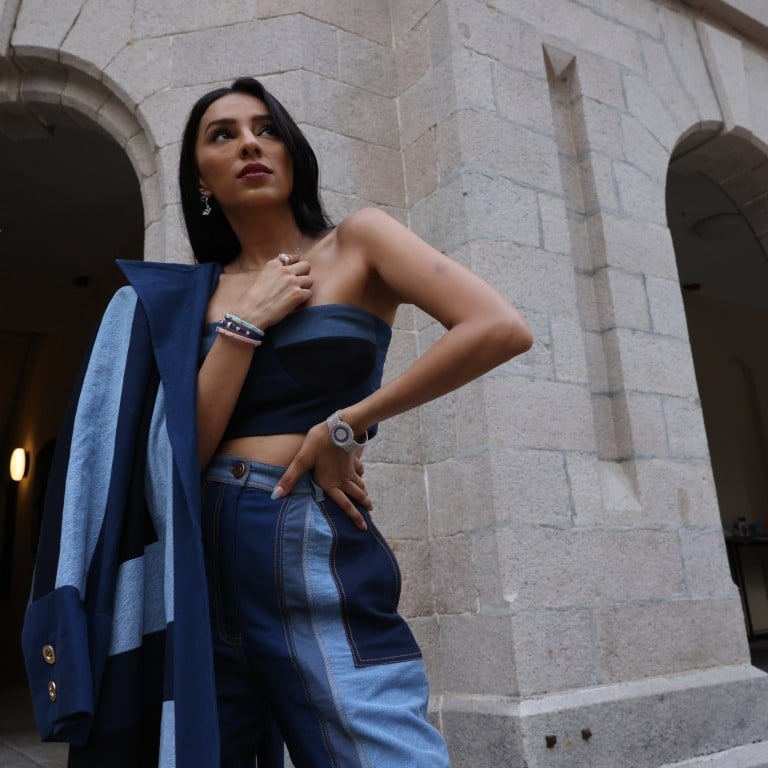Meet Hong Kong’s Web3 entrepreneur bringing AI to the masses: jeweller to the stars Payal Shah is focused on educating women in the digital space and insists AI should ‘include all genders’


She attributes much of the success of L’Dezen and her own personal brand to her dedication to following the latest tech trends. “In this competitive world, you have to find ways to grow and stay ahead of the curve,” said Shah. “If you’re constantly involved in what’s available and innovating, then all of a sudden you’re keeping your brand relevant, and that gives you a competitive edge that you’d normally need to pay millions of dollars for.”
Playing with food: the quirky creations of jeweller Nadine Ghosn
Recently, Shah’s focus has shifted away from Web3 and NFTs to AI. Though she still likes the core ideals of NFTs, namely the idea of giving ownership back to the artist without the influence of a third-party entity, she feels that things haven’t unfolded the way she had originally hoped, at least thus far.

Shah now regularly hosts seminars and workshops with a focus on educating artists and entrepreneurs about how to use AI. “Research is a huge part of the design process – what the latest trends are or where they’re headed, and AI makes that process way more efficient,” she explained. “You’re creating with the idea of: yeah, I’m an artist, but I want to make sure this art converts into sales, so I need to incorporate data. So I’ll find out, how much do my potential customers spend per year on jewellery? What’s the material of the year? And so on.”
Time on a ring: how fine jewellers are reviving the ring watch
As a boot camp and training organiser at Female Entrepreneurs Worldwide, one of Shah’s main passions is educating women about AI. “I don’t want AI to be completely male dominated the way Web3 was; I really want AI to include all genders,” she explained.
Another reason Shah wants female entrepreneurs and artists to become more tech-savvy is that she thinks that AI is both more important and more transformative than Web3, especially in the art space. “If you completely ignored Web3 [during the peak mania phase], you’d still be completely fine,” she said. “But you can’t ignore AI. The phone you’re using probably uses AI. Most of the apps you use are already using AI. That’s why education, especially for women, is so important.”

Shah does her best to keep her workshops fun and playful, while teaching important skills like prompt engineering, data analysis, as well as going over the latest trends and developments in the space. Though Shah is an AI optimist, she understands the concerns that a lot of artists have about generative AI art and the ease with which art can be produced by AI programs; concerns about whether AI generated art is “real”; and the potential threat to the livelihood of artists who have spent years perfecting their craft.
Interview: Ambush founder Yoon Ahn on content, collabs and Web3
She, like many others, is especially concerned about OpenAI’s latest project, Sora – an AI-powered, text-to-video model that will allow people to make films in a matter of minutes. “What usually requires 30 people to get on set for photoshoots and video shoots, and their whole livelihoods are based on this – a lot of it is going to get wiped out thanks to Sora, and the number of shows and films is going to be overwhelming,” Shah said.

While she understands the sentiment that artists share, Shah added, “[AI is] not a real person: it’s just mimicking a bunch of different people’s information that’s been given, and turning that into art.” She believes that art with a human touch will be at a premium, and her advice to young and upcoming artists is to never let their art lose its human element.
“You can think of the AI as a second brain,” she continued. “An amazing, high-IQ assistant, but your brain has to be involved, and you have to give the AI something human and relevant when prompting – and that will always require you to work and do your own research.”

- Shah’s brand L’Dezen was one of the first jewellery companies in the world to incorporate NFTs, enabling customers to assume both physical and digital ownership of pieces
- A boot camp and training organiser at Female Entrepreneurs Worldwide, Shah says it was possible for entrepreneurs and artists to ignore Web3 during its heyday, but ‘you can’t ignore AI’